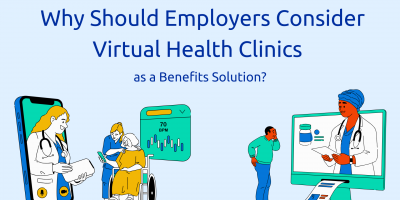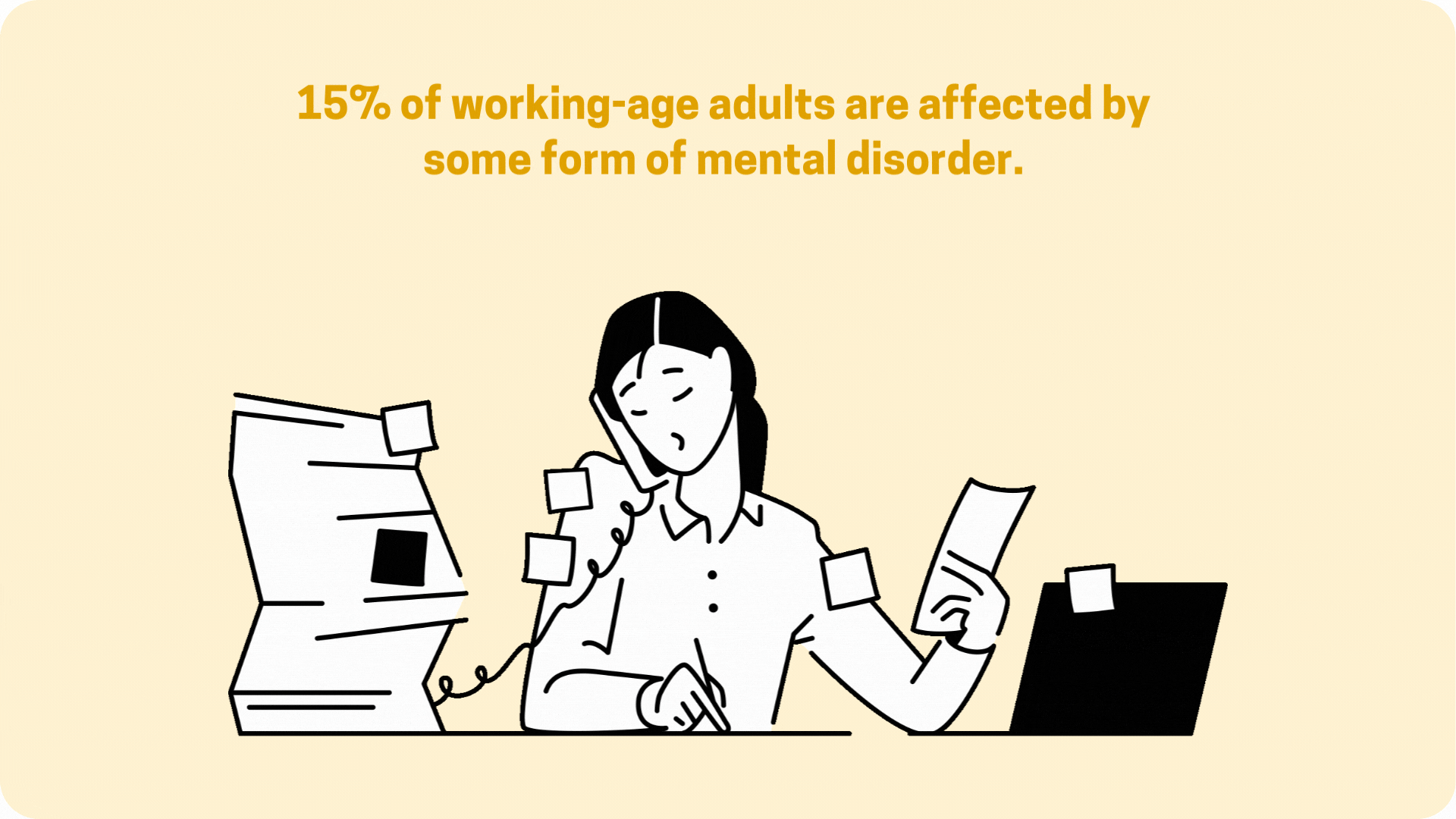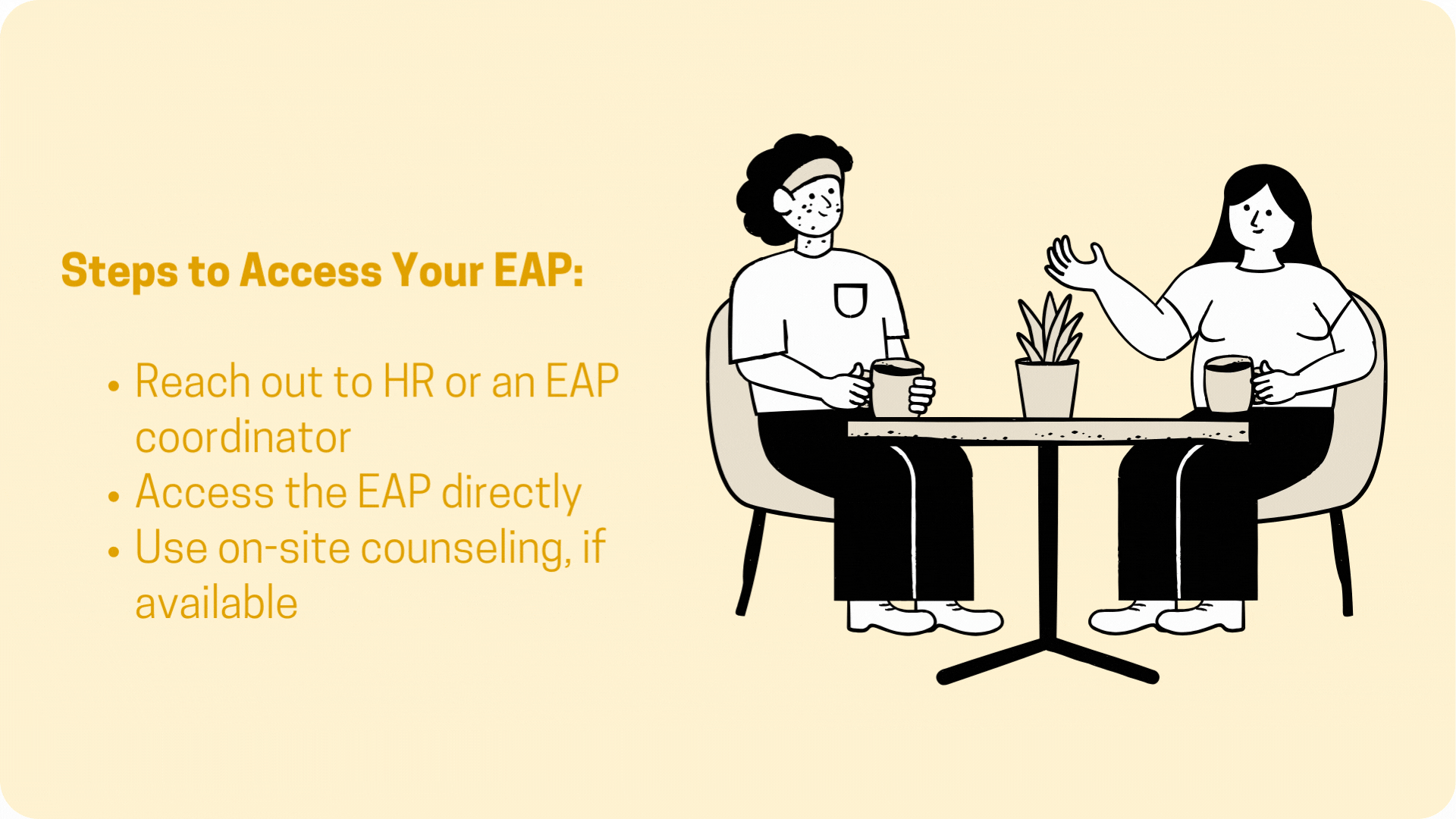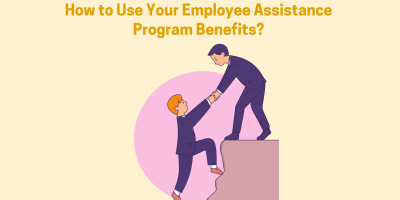As the workforce navigates employee assistance program benefits, they might have additional questions or concerns about their use.
Below, we answer some of the most common ones.
- How much do EAP services cost me as an employee?
EAP benefits are usually free of charge for employees and their families. The cost generally falls on the employer as part of the company’s employee benefits package. It depends on the number of participants, the type and scope of services the program covers, and the provider.
- Will my employer know if I use the EAP services?
Confidentiality is at the core of EAPs, meaning employees get complete privacy when using a service. Employers, managers, HR, or health insurance carriers will never know if and when an individual uses the employee assistance program benefits, nor will it appear on the Electronic Medical Record.
- Can my family members use the EAP services, too?
It depends on the specifics of the employer’s contract with the EAP provider. Some, but not all, plans expand the access to support to immediate family members and dependents. The HR department or EAP representative should have detailed information regarding this matter.
- What’s the difference between EAP counseling and regular mental health services?
EAP counseling offers short-term, employer-funded support for employees dealing with personal or work-related issues affecting their performance. In contrast, regular therapy addresses a broader range of mental health concerns and typically involves longer-term care.
EAP counselors may also refer clients to external services when needed.
- Can I access EAP services outside of work hours?
It depends on the provider. Many EAP services have the standard 9 to 5 work hours, while others may expand their assistance to later in the day for crisis assistance or appointments. Some providers also offer 24/5 or 24/7 aid to employees.
- What happens if I need long-term support beyond what EAP provides?
If an employee needs ongoing support beyond the EAP capacity, their counselor will likely refer them to outside resources like a therapist or specialist. However, any costs outside the EAP’s coverage would typically be the employee’s responsibility.
- Can I choose my own counselor or provider?
Employers choose the provider they want to work with. Once selected, employees can access the EAP services and choose their counselor.
The provider offers a curated list of professionals who meet the criteria based on the individual’s location, needs, and preferences. The employee then makes the final decision and can change it if unsatisfied with the selected counselor.
- Are virtual/telehealth options available?
Many EAPs offer virtual or telehealth counseling as part of their programs, but not all do. Depending on the provider, they may cover in-person sessions, phone consultations, or virtual options.
However, it’s helpful to consider EAP alternatives, such as separate telehealth services, virtual counseling, or wellness programs, to complement existing plans for a more holistic offering.
- What constitutes an EAP emergency, and how do I get help in a crisis?
An EAP emergency involves urgent situations, like personal or family crises, severe emotional distress, or other urgent mental health concerns that require immediate attention. In a crisis, a counselor can provide immediate support or refer employees to emergency services or another professional for help.
- If I use EAP services, will it affect my job or performance review?
Since HR, managers, or the employer can’t know whether an employee is using an EAP service, this does not affect their career. However, receiving support for personal and work-related issues can improve work productivity, which will ultimately have a positive impact on performance.
- Can I switch counselors if I’m not comfortable with the one assigned?
If employees are unsatisfied with their counselor, they can contact the EAP and request a change, and the provider should ensure they’ll get the most appropriate choice.
- How quickly can I expect to get an appointment?
It depends on the provider, but the appointments are typically scheduled within 3 to 5 business days. If it’s an emergency, they may be scheduled on the same day or within 24-48 hours.









